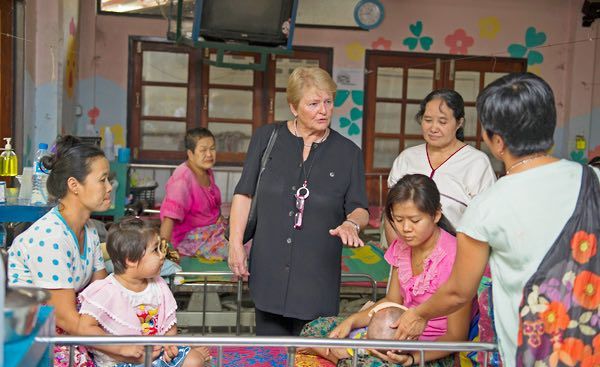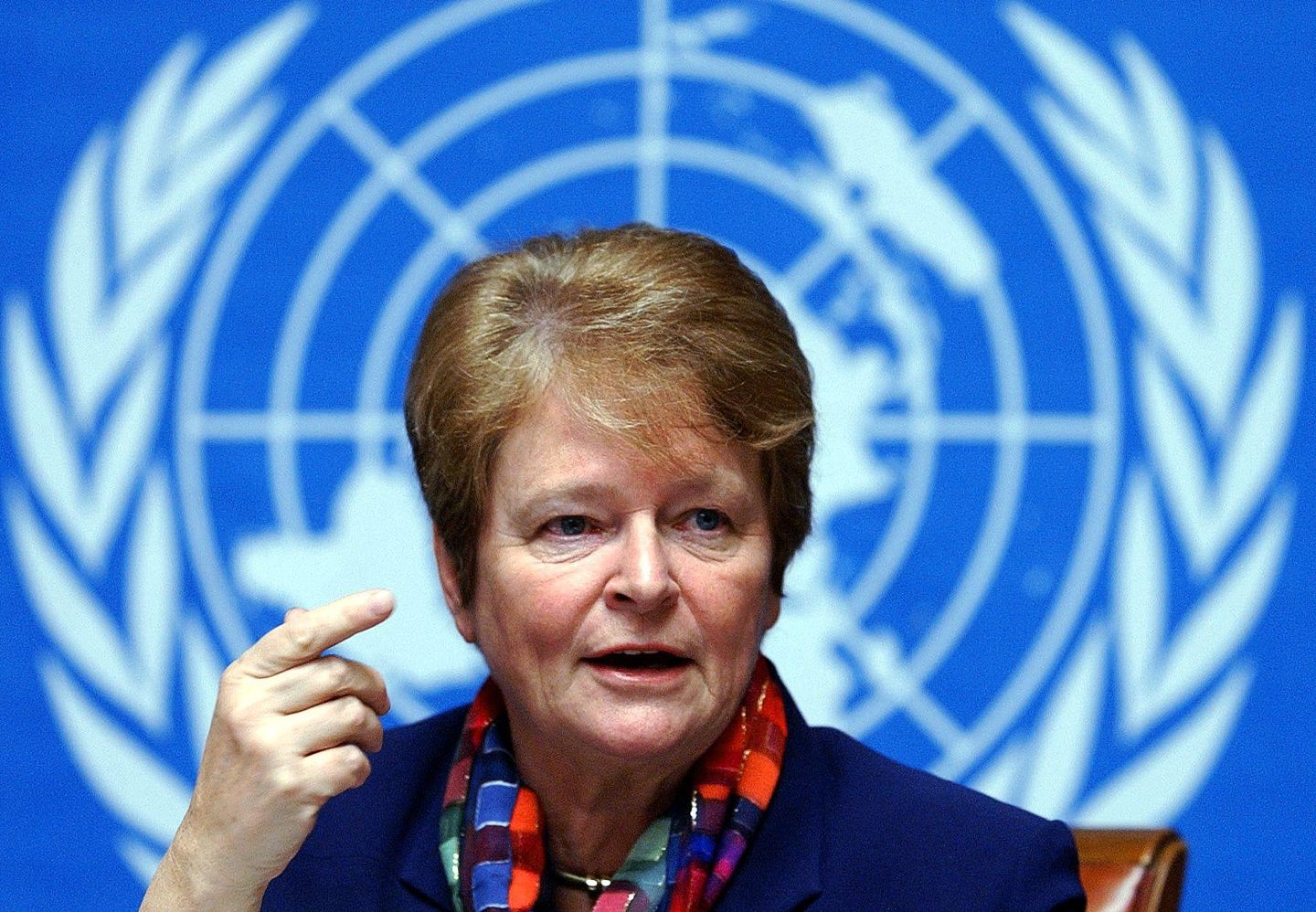You have been referred to as the mother of sustainable development - what are the responsibilities that come with that title?
First of all, I am driven by my own conviction and my own determination that these issues are fundamentally essential for the world. It is not important how people characterize me although I am not negative about being given that title. Maybe it can even help sometimes, because it makes people listen! That is helpful when you are communicating and trying to convince people that change is due. So it is my inner voice that drives me to continue the work with The Elders.
What is your definition of responsibility in relation to sustainable development?
The basic definition I always relate to in every speech I give is: We are all responsible. Meaning that as individual citizens each of us is responsible. You are a part of the solution whether you are a businessperson, or you have been given power as a decision maker, or you are in a different capacity. The responsibility belongs to everyone.
This is a basic democratic assessment. Because to create the basis for change, it is important that people are educated, aware and interested in what they can do as individuals. That is true for all of us. But of course in addition to that general statement, the more power and possibilities you have - the greater is your responsibility.
When you look at the development towards a sustainable world - are you satisfied?
I have seen first hand that the breakthrough was greater and deeper than we could have anticipated. So many things have happened. I have promoted change and simultaneously I have seen things move in the right direction. Yet again, I have also seen many setbacks and been disappointed. Things have always gone more slowly than we would have wanted.
The report came out 28 years ago and quite a few milestones have been reached since then. For example in 2015 when the world agreed on both the Sustainable Development Goals and the Paris Climate agreement. This is a great achievement given that the UN has 193 member states with very different levels of development and cultural background. Perhaps it is not surprising that it should take 28 years to reach that point.
So in a way – the answer is yes. I have been impatient but I have also always kept my optimism, because I have seen how things have been moving forward slowly and more people have become aware.

Are there any Sustainable Development Goals that you are particularly exited about?
To me sustainable development is the broad umbrella and climate issues are an important part of it. I also personally worked hard to protect and support the text under health as well as that on discrimination against women.
But there is one specific target that I am focused on and that is to abolish child marriage by 2030. That is particularly important to me and to all of us Elders. In 2010 we decided that we would pursue the issue of child marriage, because it was a forgotten issue in the global discussion. Millions and millions of girls every year are being captured as 10 year olds and becoming mothers when they are 13 years old. This is a violation of the rights of girls and women. Of course some boys are affected as well, but mostly girls.
Gradually we as Elders brought people together and visited several countries, for example India and Ethiopia. We created an alliance against child marriage that is still ongoing. Then we managed to get a target in the Sustainable Development Goals about child marriage under the goal about gender equality.
How do you see the role of businesses in reaching the Sustainable Development Goals?
Even as late as the millennium I still heard the stupid comments that dominated the discussions of the last century. Namely that environmental issues, equality, social issues and climate issues are for governments to solve. “We are businesses and our responsibility is to take care of the bottom line“. This was the thinking and this was how they discussed at least far into the 90’s.
Today nobody would dare to say such a thing, because the scenario and the way of thinking have changed. Businesses have a great responsibility and the more innovative they become and lead the way towards change, the better.
What part should civil society play in reaching the Sustainable Development Goals?
People often ask: “What can I do“? Which is good. Well, depending on exactly what they are interested in, I can of course offer different perspectives. But one thing remains fundamental: Everyone can do something! Develop some kind of interest!
Now with the Internet and social media, there are even greater possibilities to commit to change. With your own engagement you can be part of the solution. You can make a difference.
This is the NGO-world. Whether you take part in a political party, or you decide to link up to the people who work on abolishing child marriage; the rights of women; people working on solar energy; CO2 emissions; or traffic solutions.
You can choose among a number of different interesting areas, depending on your background or experience. Everyone can engage, which is why we have a large, global NGO community.
Is it the individual’s ethical responsibility to engage?
Yes, to me it is an ethical responsibility to engage. It is not my finger pointing. You as an individual have a choice. There are so many issues that need to be promoted. Whatever you choose to do, you can make a certain amount of difference.
What do you think about the younger generation now and their commitment to sustainability?
I do think there is a lot of engagement and commitment. Young people are connecting through social media and addressing important issues that are part of sustainable development. It is positive.
But then there is also the tragedy: You can find information on all the sustainable development issues through the Internet and social media links people across the world. But then you have increasing hate messages, fake news and false comments, which really worries me.
Governments across the world, and even NGOs, have not found a solution so far. How do we regulate the Internet? I don’t have the solutions. I only know, this is a major concern that has to be dealt with.
We don’t want to undermine the freedom of speech. But that doesn’t mean you have the right to spread wrong, or directly misleading statements that can fool people into making bad decisions. Something has to be done.
What are your thoughts on Felix Finkbeines initiative?
It illustrates that you can always do something and in this case you can obviously do a lot. He has really taken many steps ahead of most people. Great!
Do you have a particular call to action to individuals?
Do engage. Commit yourself to something that is relevant to the future, to the society and the world.



















